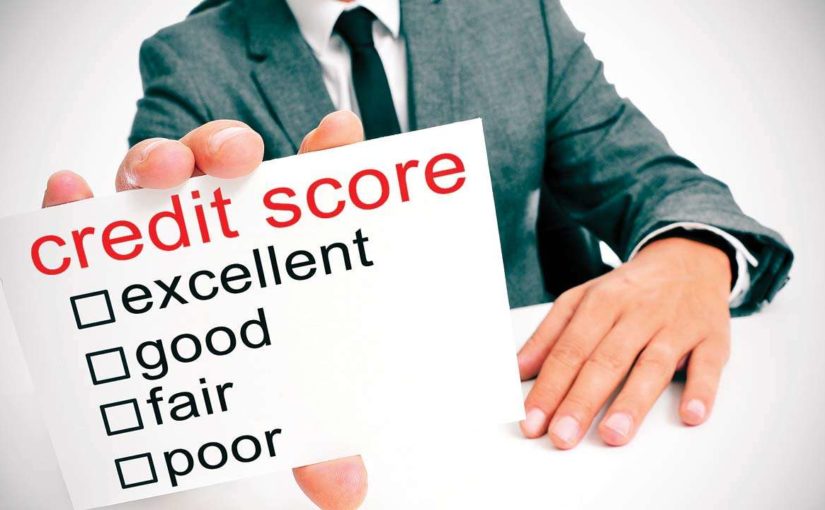
Understand Credit Score & Credit Information Report (CIR) – In general, every credit rating agencies like CIBIL, Experian etc. allotting a three-digit number, typically ranging from 300 to 900, that is the result of an analysis of your credit file. This three digit number tells your credibility and make you eligible for any loans.
This score intimate lenders about your potential credit risk and ability to repay loans. Credit scores consider various factors, such as payment history and length of credit history, from your current and past credit accounts.
Credit score ranges vary within the credit bureau CIBIL, Experian, Equifax and TransUnion. It depends on the various tools which pulls the score. The ratings typically include bad/poor, fair/average, good and excellent/exceptional. The rating you receive depends on the credit score you have. Below, you can check which rating you fall into : courtesy: Experian
Also Read – Credit Card EMI, Everything You Should Know
How are credit scores calculated?
Credit score ranges vary within the credit bureau CIBIL, Experian, Equifax and TransUnion. It depends on the various tools which pulls the score. The ratings typically include bad/poor, fair/average, good and excellent/exceptional. The rating you receive depends on the credit score you have. Below, you can check which rating you fall into : courtesy: Experian
| Rating | Credit Score |
|---|---|
| Very poor | 300-579 |
| Fair | 580-669 |
| Good | 670-739 |
| Very good | 740-799 |
| Exceptional | 800-850 |
- Payment history (35%): Whether you’ve paid past credit accounts on time
- Amounts owed (30%): The total amount of credit and loans you’re using compared to your total credit limit, also known as your utilization rate
- Length of credit history (15%): The length of time you’ve had credit
- New credit (10%): How often you apply for and open new accounts
- Credit mix (10%): The variety of credit products you have, including credit cards, installment loans, finance company accounts, mortgage loans and so on
What’s the difference between a credit score and a credit information report?
Credit score is different from the credit information report. The difference is simple, Credit Score is holistic where as CIR is detailed. Credit reports detail personal information (name, address, Social Security number), credit accounts (payment history, credit limit, account balance), public records (liens, bankruptcies, foreclosures) and inquiries into your credit. The main credit bureaus who issue reports are CIBIL, Experian, Equifax and Trans Union.
The status of the account
If your account has been written off/ settled/ suit filed, such cases may not be looked upon favorably by lenders. It is always advisable to have a clean account status. It is very important to understand the “Settled” and “Written off” terminologies. ‘Settled’ means a partial payment (in consent with the lender) has been made against the total outstanding.
When payments against the outstanding loan / credit card amount have not been made for more than 180 days, the lender “writes off” the amount and reports this on your CIR. Any such status may affect your credit eligibility adversely.
Also Read – Loan Default, Know Your Rights If You Can’t Repay ?
Your DPD (Days Past Due) for every loan or credit card availed
The DPD indicates how many days a payment on that account is late by that month. Anything but “000” or “STD” is considered negative by the lender. The types of asset classification in the DPD section are:
- Standard (STD): Payments being made within 90 days
- Special Mention Account (SMA): Special account created for reporting Standard Accounts moving toward Sub-Standard
- Sub-Standard (SUB): Payments being made after 90 days
- Doubtful (DBT): The account has remained Sub-Standard for 12 months
- Loss (LSS): An account where loss has been identified and remains uncollected
“XXX” on your DPD for a certain account implies that information for these months has not been reported to CIBIL by the banks. A number in the DPD column indicates that the payment is late by that many days. “050”, for instance, means the payment is 50 days late. “000” means the payment is on time, so there is no deviation or late payment.
How to Improve the Credit Score ?
There are multiple ways to improve the credit score. Few of them are:
1. Check Credit Report and spot any error, rectify it as soon as possible
Many a time there are many loans or Credit Card which have been settled or closed but still appearing in the credit report as overdue. Check for such error, take up the matter with the credit agencies and resolve it. Eliminating such errors can boost your score.
2. Maintain Older Credit Cards
Continue using your older card to have a stronger and lengthier credit history. Remember that a credit card account, which you have been maintaining for over a period always helps to boost your score.
3. Timely Repayments
This is the major booster for good credit score. Your score will take a hit if you don’t repay in due time. Every time you default, it gets recorded in your report and eventually hurts your score. Always remember that your creditworthiness reflects your repayment history. Hence, to improve your score, keep making timely payments.
4. Avoid Racking Up Debts
The number of loans against your name can have an impact on your score. Hence, it’s recommended to take one loan at a time. Close it down and then go for next loan. Also, ensure not to over-utilize your credit card. As in, keep the utilization ratio between 20% and 30%. This will help you make repayments comfortably without any financial pressure.
5. Negotiate your Credit Card Limit with the Bank
As mentioned earlier, your credit utilization ratio can make or break you financially. If you over-utilize, your score may drop. You can get in touch with your bank to customize your credit limit based on your expenses.
6. Go for Long-term Loans like Home Loan or Mortgage Loan
The interest rates are lower for long-term loans and so are the EMIs. It will make it easier for you to make repayments and minimize the chances of defaulting.








Leave a Comment